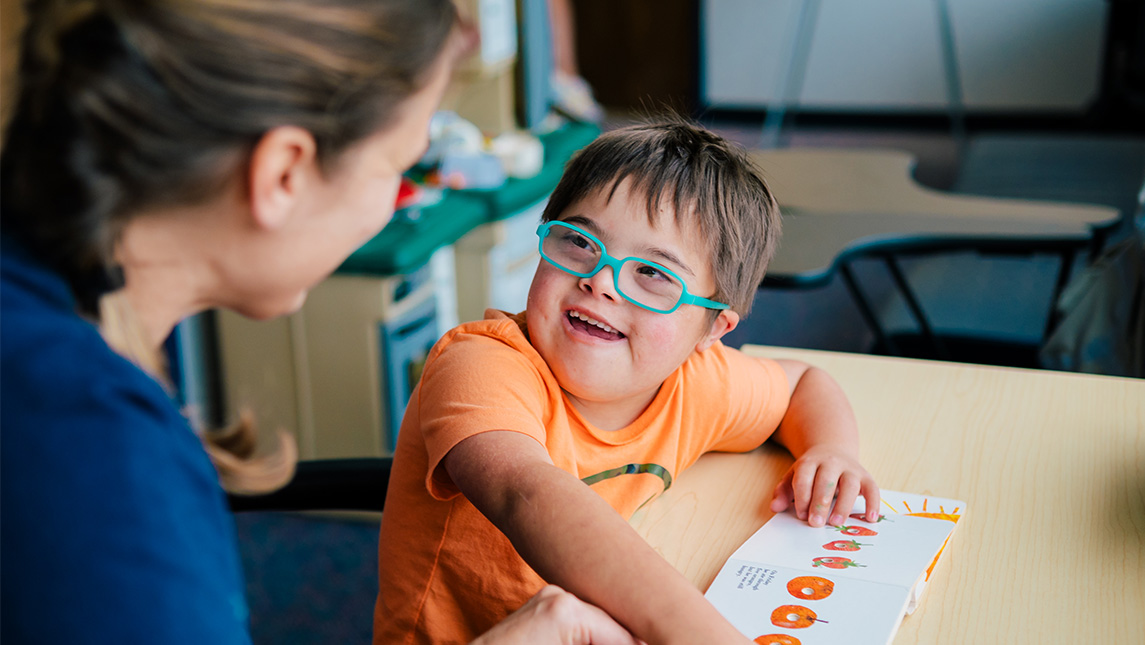Emily Hamuka, a clinical educator in the Communication Sciences and Disorders Department at UNC Greensboro, was once asked what she would do if she could design any summer camp. From that question – the Sports and Language Camp was formed.
A GAME CHANGER
The 10-day camp in June is a partnership with the Down Syndrome Network of Greater Greensboro and provides sports activities along with language, communication, and literacy skills for children ages 3 to 8 with Down syndrome. The camp started in 2022 with six campers and has now grown to eight.
“I love working with this population and I love early language and literacy skills for this age group,” Hamuka says. “Coming out of the COVID-19 pandemic last year, this was really the first-time these kids could experience a camp with other kids that were like them.”
Martha Chaires, the former board president for the Down Syndrome Network of Greater Greensboro, helped Hamuka establish the camp. Her own son, Javier, is also a camper.
“This is a wonderful thing for our community,” says Chaires. “We’ve seen such great things from the kids in just a short two-week time span. It’s a game changer for them.”
GREAT STRIDES
Each day of the camp focuses on a different sport and the activities are based on a book of the day. The group reads the book, and they then do activities focused on vocabulary, expressive language, and phonological awareness.
Each child is also paired with a graduate clinician and gets individualized therapy for 45 minutes daily. This individual attention makes a remarkable difference for the children. Chaires says her son was nearly non-verbal last year while also getting private and school speech therapy. The camp helped him gain more confidence and the ability to speak.
“He made more advancements in the two weeks than he made the entire year beforehand,” says Chaires. “All of the children made great strides.”
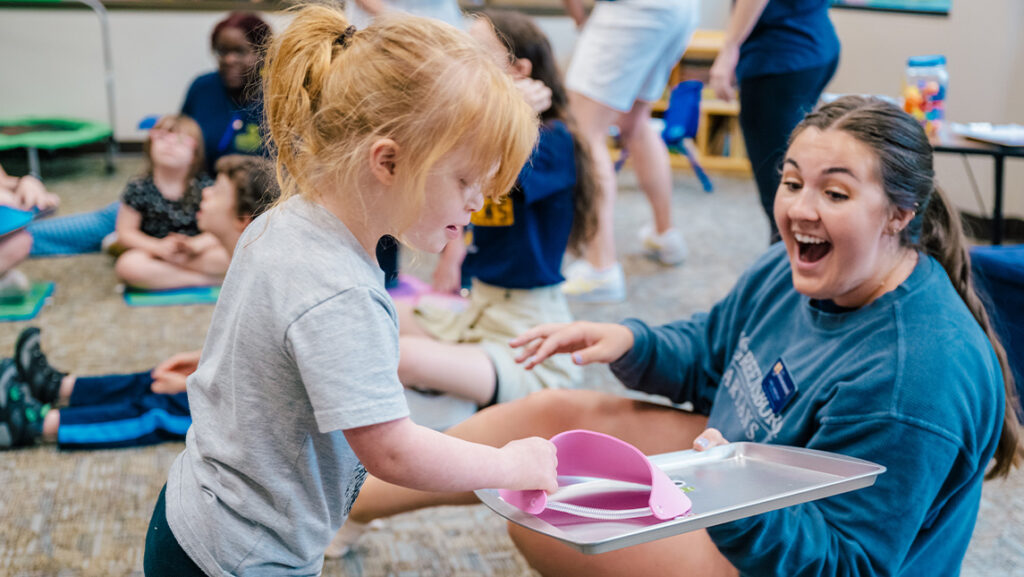
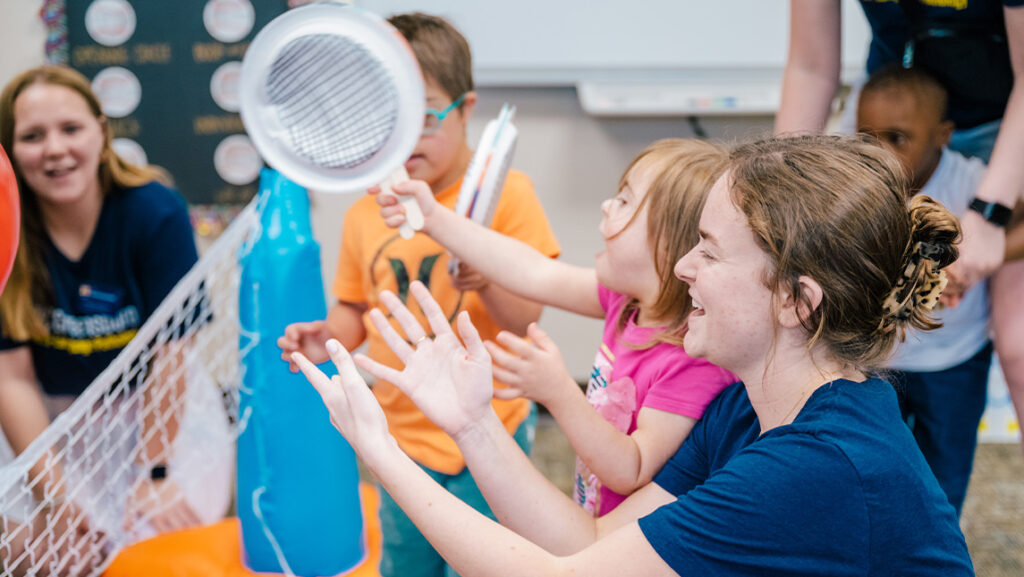
FORMING BONDS
Speech language pathology graduate student Savannah Lewis ’22 is one of the clinicians working with the children at the camp. Hamuka supervised Lewis during her first semester of graduate school when Lewis was assigned a 3-year-old with Down syndrome who attended the first year of the camp.
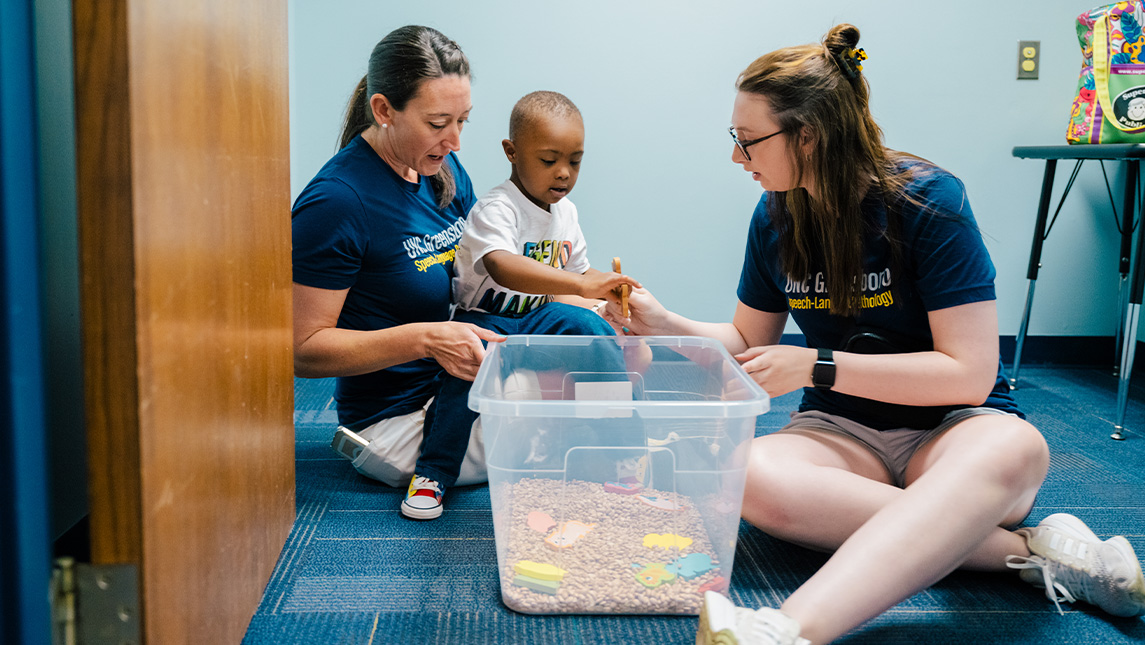
“I absolutely fell in love with him. He was adorable and just so smart,” says Lewis.
It was this interaction that inspired Lewis to help with this year’s camp. She looked forward to working with him again and meeting new kids that were experiencing the camp for the first time.
“This population of kids has so much room for growth and it’s really rewarding to be able to help them grow their social communications skills with others,” says Lewis. “I love incorporating all the books, the literacy activities, and playing sports. It’s amazing.”
The graduate clinicians become connected with the children, but the children also develop a bond with the students.
“Javier adored his student last year,” Chaires says. “She came to the Down Syndrome Network’s Buddy Walk in October, and he remembered her and was so excited to see her. He loves his one-on-one time with her.”
REAL-WORLD EXPERIENCE
The one-on-one therapy is a great benefit for the children attending the camp – but also the graduate students who are getting real-world experience on the UNCG campus. The camp allows them to earn clinical hours toward their degree completion.
“It’s really unique,” Lewis says of the camp. “One of the best parts about UNCG’s program is having the Speech and Hearing Center. It allows us to be hands-on with our clients and gain experience working one on one with many different types of people.”
Hamuka emphasizes that the camp belongs just as much to the graduate students as it does to her. She plans and runs the first day of the camp and then the graduate students take over for the next nine days.
“The group work and collaboration are huge.” says Hamuka. “The graduate students get to see the whole spectrum of how you can integrate language and learning into any activity.”
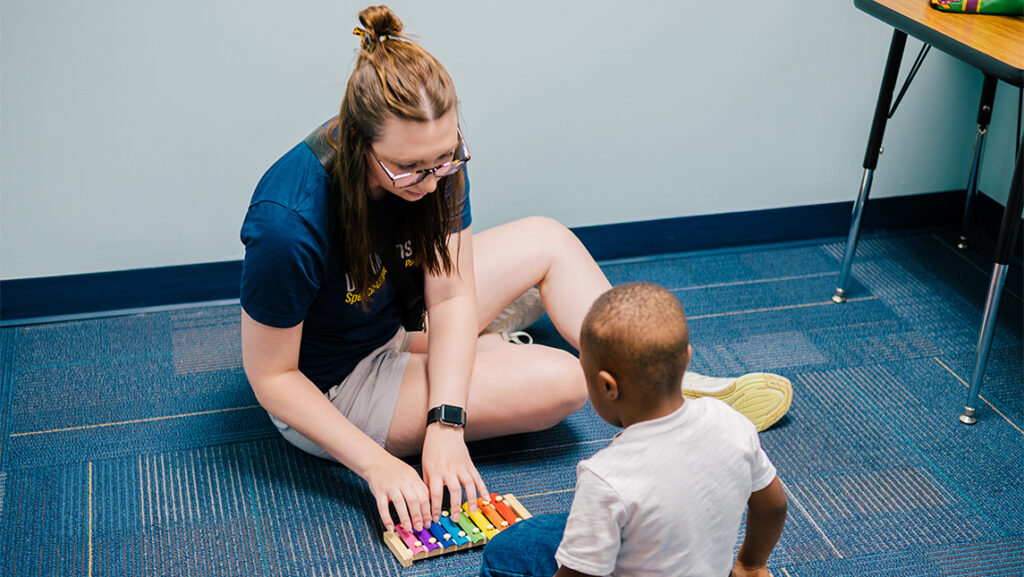
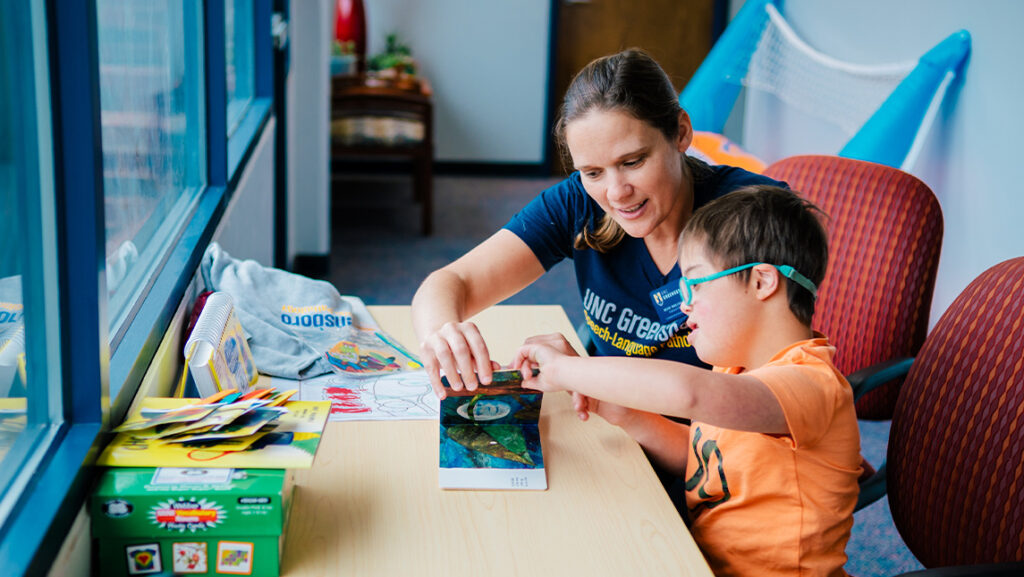
MORE SUMMER CAMPS
The Sports and Language Camp is just one of many summer camps held by UNCG’s Department of Communication Sciences and Disorders that allow for graduate students to receive clinical hours while also helping people in the community:
- Horsepower Experience – A therapeutic horseback riding camp for adult survivors of strokes.
- Listening Lab Camp – A summer program for children diagnosed with auditory processing disorder (APD)
- Camp SpeakaLot – A free summer camp for children ages 7 to 13 who stutter.
- Aphasia Camp of the Triad – An intensive two-week program to provide individual and group treatment for people with aphasia.
Story by Avery Craine Powell, University Communications
Photography by Sean Norona, University Communications
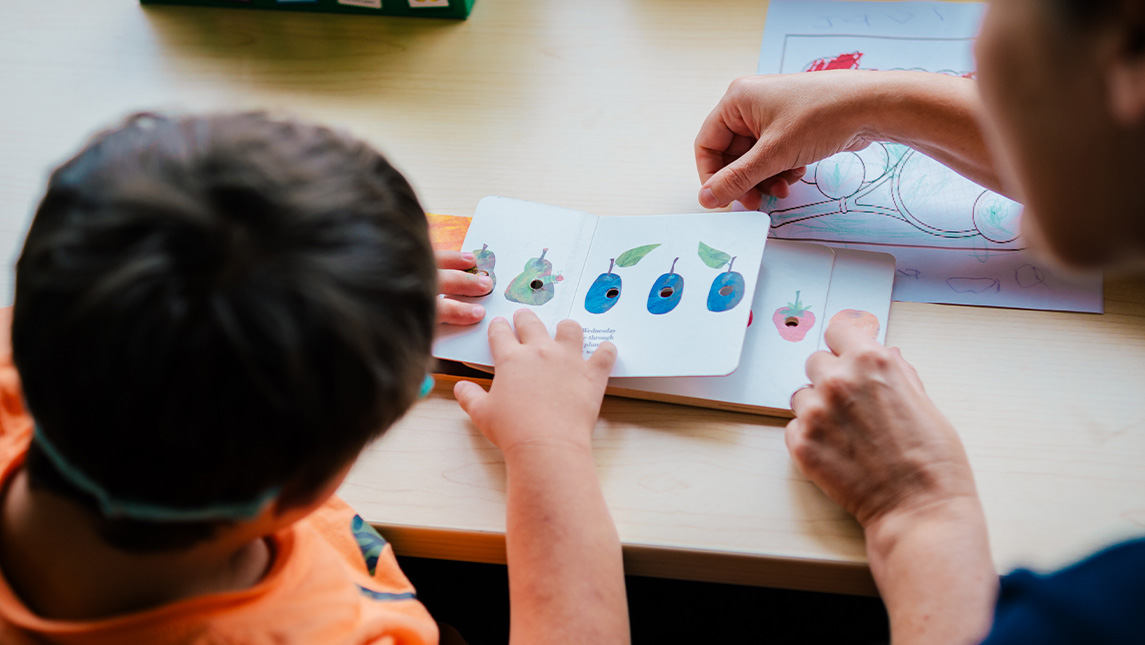
Remarkable, real-world impact begins with you
